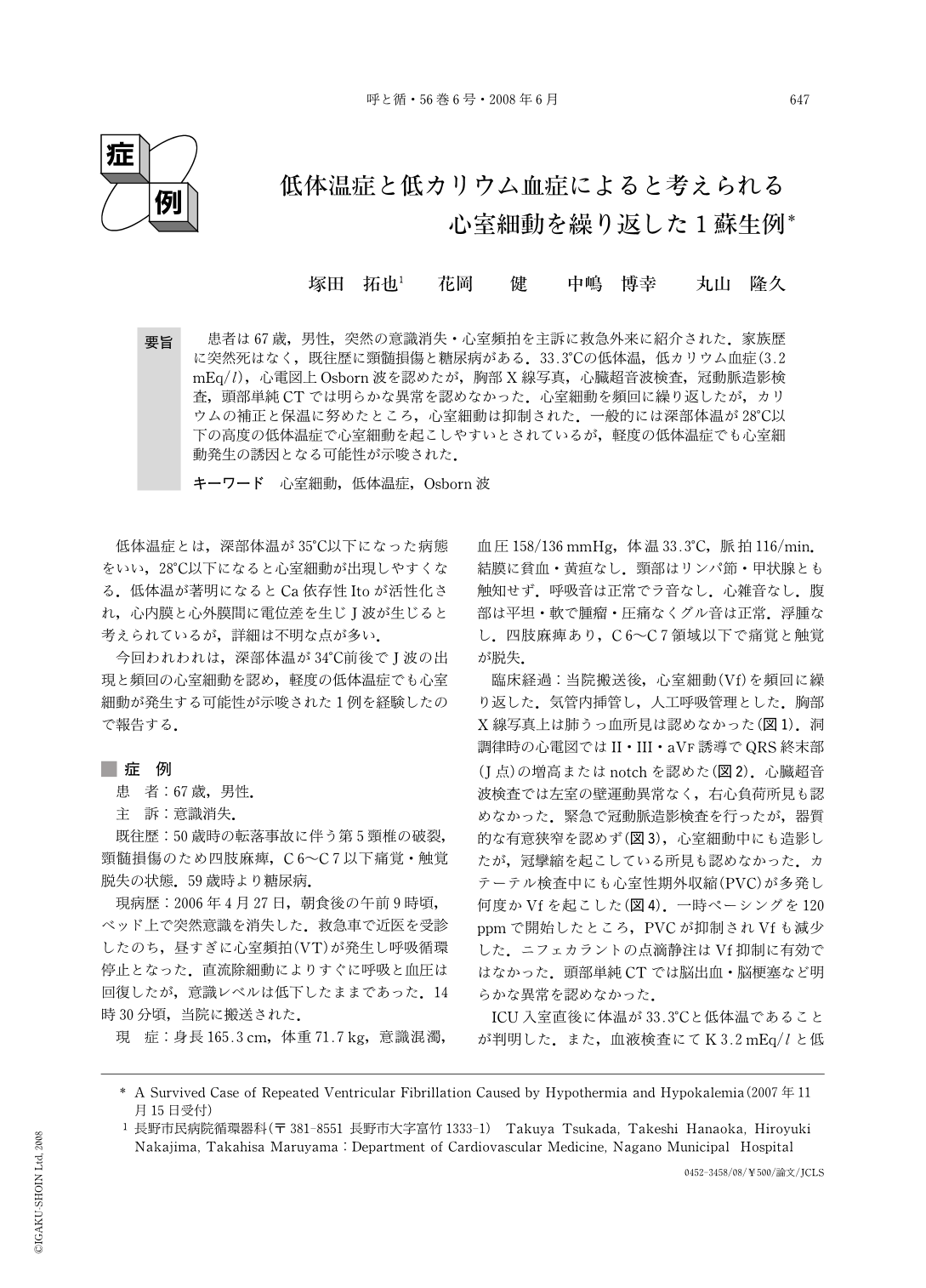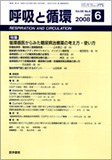Japanese
English
- 有料閲覧
- Abstract 文献概要
- 1ページ目 Look Inside
- 参考文献 Reference
要旨 患者は67歳,男性,突然の意識消失・心室頻拍を主訴に救急外来に紹介された.家族歴に突然死はなく,既往歴に頸髄損傷と糖尿病がある.33.3℃の低体温,低カリウム血症(3.2mEq/l),心電図上Osborn波を認めたが,胸部X線写真,心臓超音波検査,冠動脈造影検査,頭部単純CTでは明らかな異常を認めなかった.心室細動を頻回に繰り返したが,カリウムの補正と保温に努めたところ,心室細動は抑制された.一般的には深部体温が28℃以下の高度の低体温症で心室細動を起こしやすいとされているが,軽度の低体温症でも心室細動発生の誘因となる可能性が示唆された.
A 67-year-old man with histories of an injury of the cervical spinal cord and diabetes was referred to our hospital because of consciousness loss and ventricular arrhythmia. His family history did not include sudden death. He had hypothermia (33.3℃) and hypokalemia (3.2mEq/l), and Osborn wave was found in his electrocardiogram. There was no abnormality in chest radiograph, echocardiography, coronary angiography and brain CT. He suffered repeated ventricular fibrillation, but revived by rewarming and correction of serum potassium. Although ventricular fibrillation can occur with severe hypothermia (less than 28℃) generally, this case suggest that ventricular fibrillation might have been caused by mild hypothermia.

Copyright © 2008, Igaku-Shoin Ltd. All rights reserved.


